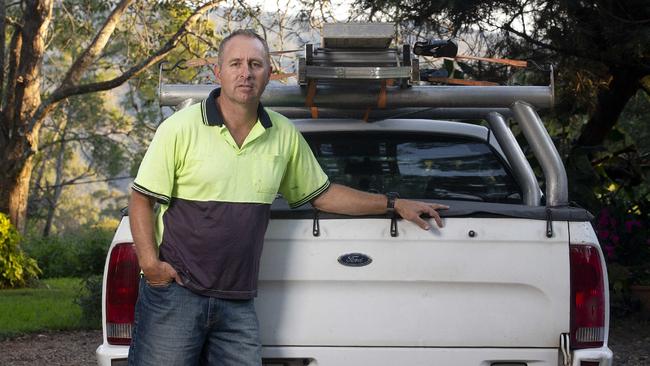Court ruling to change everything for casuals
A FEDERAL Court decision on casual employment has created a potential headache for the Morrison Government just months out from an election, writes Renee Viellaris.
QLD Business
Don't miss out on the headlines from QLD Business. Followed categories will be added to My News.
A FORMER dump truck driver from Central Queensland has put the Morrison Government on edge.
There’s implications for Bill Shorten, too, but the stakes are higher for Scott Morrison.
Just like immigration is Labor’s Bogeyman or Voldemort, mentioning “industrial relations reform” is enough to bring on symptoms of post traumatic stress for most Coalition members and staff.
Months out from an election, the Government faces a significant political and economic challenge.
And it has enormous consequences for business across the country, especially in Queensland and South Australia.
Employee groups have launched a full-throttled SOS to Industrial Relations Minister Kelly O’Dwyer and the Senate crossbench.
This is occupying the mind of O’Dwyer and others. The tactics are splitting some Cabinet Ministers but O’Dwyer is refusing to rush through new laws and wants to take a considered approach.
O’Dwyer wants any potential laws to be bipartisan given Labor links any IR changes to the Howard government’s unpopular WorkChoices legislation, and is pressing employee lobby groups to demand a commonsense approach from Shorten.

When the Federal Court in August ruled Queenslander Paul Skene was not a casual employee and should have been paid annual leave entitlements, the precedent shocked business – from mum-and-dad small enterprises to some of the biggest chains in Australia.
Skene was employed by WorkPac, a labour hire company, as a casual dump truck mine operator in Central Queensland from July 2010 to April 2012.
His roster was set a year in advance. He was a fly-in, fly-out worker, doing seven days on and seven days off.
Employed under the Mining (Coal) Industry Workplace Agreement, he received a loading because he was a casual, earning $50 an hour, which later increased to $55 an hour. But when his employment was terminated in 2012, he lodged an application with the Federal Circuit Court for compensation for unpaid leave.
Casual workers generally do not have access to leave entitlements such as annual leave and redundancy pay. But they get a loading, usually about 25 per cent.
Under the Fair Work Act there is no definition of casual employment – and this has created a significant problem.
But the court ruled that because Skene knew his roster well in advance, his hours were regular and there was pattern of work, he could not be considered a casual employee. It ruled that he be paid annual leave entitlements.
The shockwaves are still reverberating across business. What does that mean for their casual university student who works the same set hours and days each week?
Or the single mother who relies on regular, long-term casual work or the pensioner topping up their aged pension?
The employers’ organisation Ai Group has predicted businesses faced up to $8 billion bill in backpay and, with others, has demanded the new laws end “double-dipping” of casual employees. They argue how is it fair to business to pay loading for casual work as well as entitlements that permanent part-time workers get?
National Retail Association chief executive officer Lindsay Carroll said there would be dire consequences if the ruling was extended to other industries such as retail.
“Allowing casual employees to double dip – whereby they receive higher wages while also accessing entitlements such as annual leave – has the potential to financially cripple many small businesses across several sectors,” Carroll said.
“Should the WorkPac precedent be extended to other industries, it would result in many mum-and-dad small businesses going down the plughole, along with thousands of jobs.”
A Federal Parliamentary Library paper this year on casualisation found Queensland and South Australia had the highest rates of casualisation. Not a big surprise given Queensland is the small business capital of Australia.
“Queensland has much higher casual employee shares than the national average in industries such as construction (39 per cent), transport (30 per cent), and administrative and support services (40 per cent),” the paper said.
It also dispelled the myth that there was a spike in casuals in the workforce.
“There were just under 2.5 million casual employees (those without access to leave entitlements) in Australia in August 2016 and around 7.4 million permanent employees (those with access to leave entitlements).
“The rate of growth in employees with and without leave entitlements in the past two decades has been more balanced, with the casual employee share of total employees increasing marginally from 24 per cent in 1996 to 25 per cent in 2016.
“Young workers aged 15 to 24 years are much more likely to be contracted on a casual basis compared with people aged 25 to 64 years.”
After the Court’s decision, highly-respected, law firm Corrs Chambers Westgarth recommended employers review how their casual staff are engaged.
“Even if employees are rostered, can it be said that the engagements beyond the roster period are not fixed and are variable? In undertaking this assessment, keep in mind that key features of casual employment include irregular work patterns, unpredictability and intermittency, where practical, consider offering full-time or part-time employment and/or changing the work arrangements.”
With six months to an election, and if Shorten refuses to offer bipartisan support, it is highly unlikely the Government will take on a political fight over IR.


